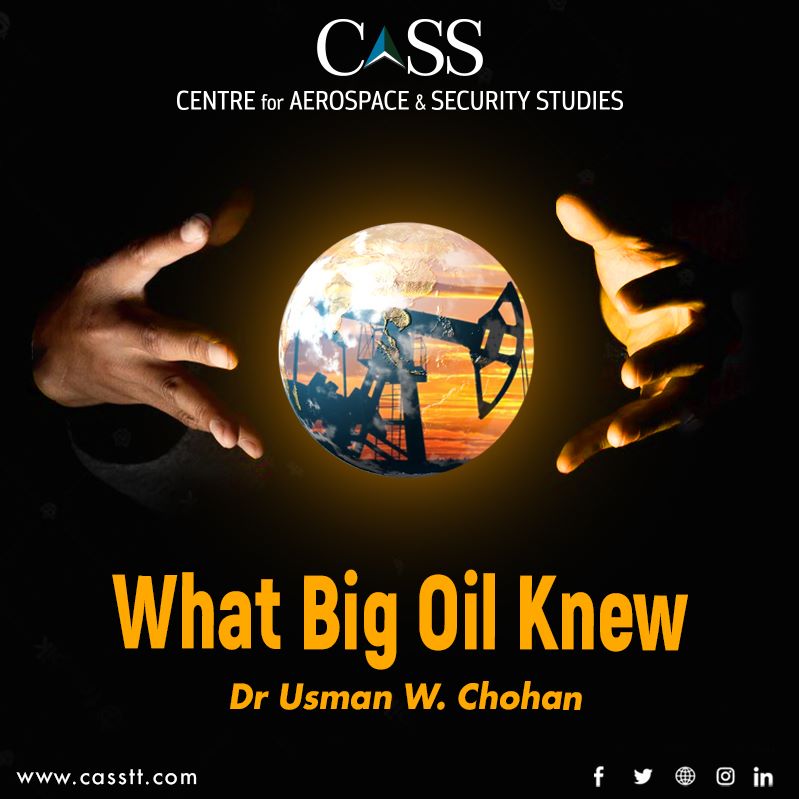The global climate crisis has been the subject of much popular attention and some policy concern. International summits have continued to raise the issue, and the UN Secretary General’s most pressing concern is, by account, the devastation that is to be wrought to human societies by climate change, not least in the developing world. There are, however, many holdouts to progress on climate change, among whom the rightwing parties in the United States and Australia are the most egregious deniers. Yet civil society and policymakers are but two elements in the larger equation, albeit a crucial one. It is also important to gauge the role of energy companies, not just in how they react today, but also in how they have led us to the present juncture.
A recent study by Supran et al. provides damning findings about the extent to which major energy companies (or “Big Oil” as they are colloquially known) were aware of the impact of their operations on climate change. For decades, Big Oil sought to suppress what its own climate models were showing, that non-renewable energy extraction was accelerating climate change, and the consequences for human society would be severe. Like Big Tobacco before it, the strategy of Big Oil lay in stressing that things were “inconclusive,” and therefore harsh penalties based on “unproven” hypotheses would be unfair to them, especially since they were such large job creators, significant taxpayers, and they provided something in very high demand.
In the public sphere, they constantly contested the emergent findings of independent scientists, and rested their claims on the need for further data. The twist was, as Supran et al.’s findings show, that even their internal models were warning of dire consequences, which “overwhelmingly acknowledged that climate change is real and human-caused.” Not just that, their models were surprisingly accurate when one measures the pattern that climate change has followed ex-post. Yet despite knowing this, Big Oil withheld the relevant climate findings because they would harm their profits. Today, the destruction to lives and livelihoods due to accelerating climate change is simply reinforcing what they knew but hid.
There are many countries, particularly the more climate-vulnerable ones in the Global South, which are raising a common voice for climate justice. A resolution that is to be tabled by Vanuatu is but one in a series of such appeals to the world’s conscience to act before it is too late (although in some ways it already is). Vanuatu’s resolution is backed by more than 100 countries, and seeks to involve the International Court of Justice in ruling on the nature of the responsibility that countries have on climate change. Vanuatu has been hit by two cyclones on two straight days, and their insistence on this matter of climate justice is both laudable and necessary.
The economic damage that is already occurring, and which shall occur in years to come, far outstrips the profits that Big Oil made. To what degree will Big Oil be made accountable for what it knew? It is easy to expect that very little will be done: Big Oil doesn’t just have big pockets, it has a loud voice. In the Trump Administration, former ExxonMobil executive Rex Tillerson served as Secretary of State, and it was his company whose internal models were pointing to the dangers most accurately, but which suppressed the truth most vociferously.
In the post-Covid era, what had been an emergent consensus on dealing with climate change has been dampened (or at least slowed) to a degree. This is because, in light of the Russo-Ukrainian war’s impact on global energy supplies, many countries which were otherwise proactively turning towards renewables have instead veered towards coal, including China and European countries. In Vanuatu’s resolution, support has not come from serious coal junkies such as the United States, India, China, or Indonesia. In sum, we could have known long ago, we do know now, and yet there isn’t enough being done.
Dr. Usman W. Chohan is Advisor (Economic Affairs and National Development) at the Centre for Aerospace & Security Studies (CASS), Islamabad. He can be reached at cass.thinkers@casstt.com.




